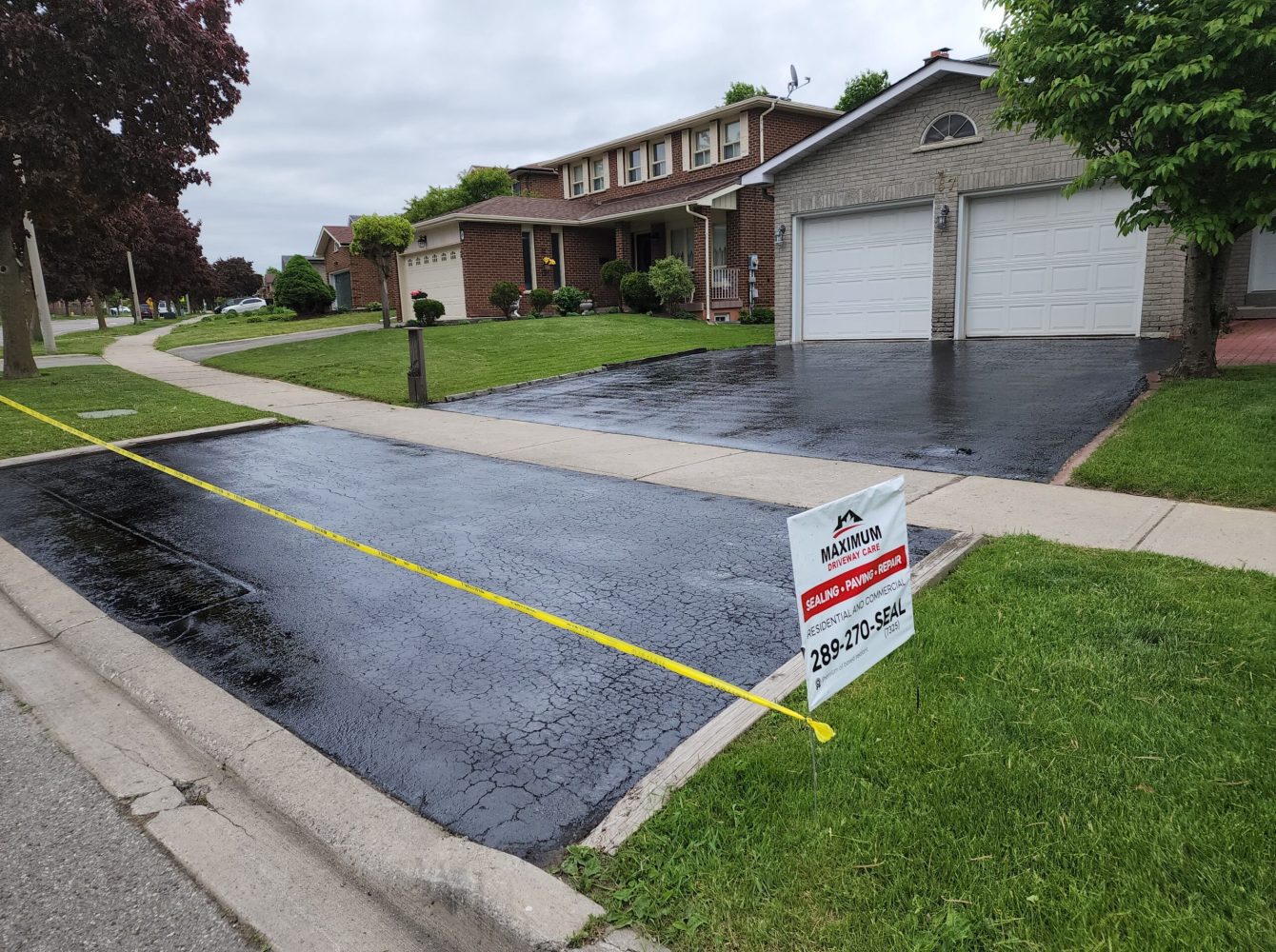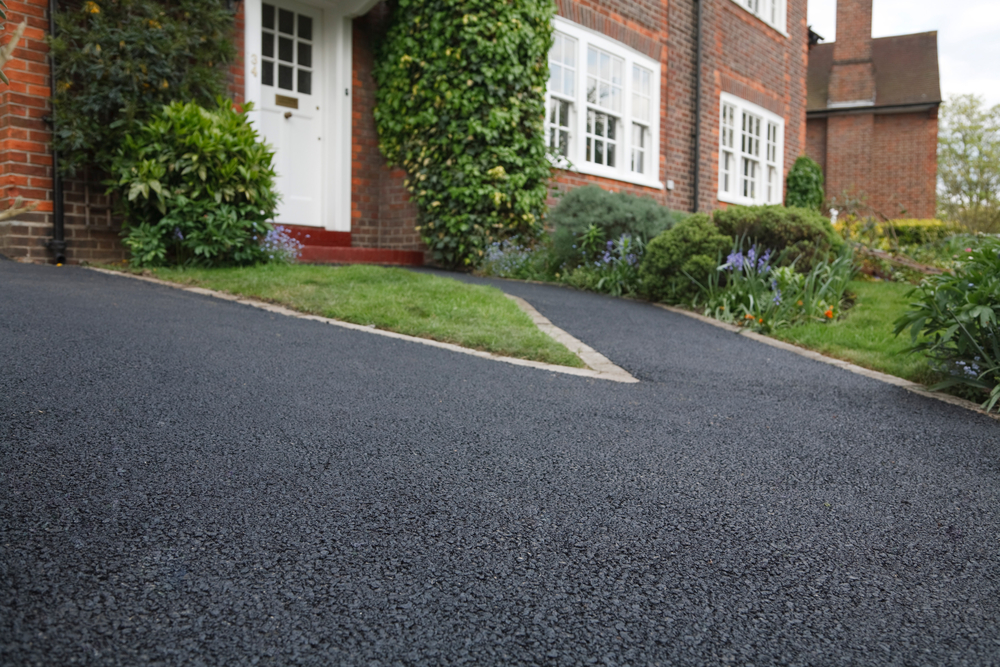Warm Mix Asphalt: A Lasting Option for Sidewalk
Warm Mix Asphalt (HMA) has arised as a leading lasting choice for pavement remedies, providing a myriad of ingenious innovations and ecological advantages. As the need for eco-friendly building methods expands, exploring the nuances of HMA's sustainability can offer important understandings right into the future of sidewalk services.
Ecological Benefits of Hot Mix Asphalt

Additionally, Warm Mix Asphalt assists to minimize city warm island impacts. Its dark color soaks up sunshine, minimizing the quantity of warmth showed back into the environment contrasted to lighter-colored sidewalks. This can lower ambient temperature levels in metropolitan areas, decreasing the need for a/c and ultimately decreasing energy intake.
Furthermore, Hot Mix Asphalt contributes to enhanced stormwater monitoring. Its permeable nature permits water to reenergize and infiltrate the pavement groundwater products, minimizing drainage and the threat of flooding. These environmental advantages make Warm Mix Asphalt a lasting selection for leading highways and roads.
Power Performance in HMA Production
Is power efficiency a crucial variable in the manufacturing of Warm Mix Asphalt (HMA)? Definitely. Power plays a substantial function in the production of HMA, affecting both cost and ecological sustainability. One vital aspect of power efficiency in HMA manufacturing is the usage of cozy mix asphalt (WMA) modern technologies (hot mix asphalt). WMA allows for the mixing and placement of asphalt at lower temperatures compared to conventional hot mix asphalt, resulting in minimized power intake during manufacturing. This procedure not just lowers gas use however additionally decreases greenhouse gas emissions, making it an extra ecologically pleasant option.
Additionally, developments in plant modern technologies have actually led to more energy-efficient HMA manufacturing procedures. By enhancing power use in HMA production, the sector can decrease its carbon footprint while maintaining high-quality pavement materials.
Recyclability of Hot Mix Asphalt
The recyclability of Warm Mix Asphalt (HMA) is an essential facet of its sustainability and lasting environmental impact. HMA is just one of the most recycled materials in the USA, with over 100 million lots of redeemed asphalt pavement (RAP) being recycled every year in brand-new sidewalk construction. Recycling HMA supplies numerous environmental advantages, such as reducing the demand for virgin products, decreasing power usage throughout production, and reducing the amount of waste sent out to garbage dumps.
The procedure of reusing HMA entails milling the existing pavement, crushing it into smaller sized items, and blending it with new aggregate and asphalt binder to create a recycled mix. This recycled mix can often perform in addition to and even far better than conventional HMA, while calling for less raw products look at this site and generating lower greenhouse gas discharges. By integrating RAP into brand-new sidewalk jobs, road agencies can conserve all-natural sources, reduce expenses, and lessen the environmental footprint of road building and construction and maintenance activities. In general, the recyclability of HMA plays a substantial duty in promoting lasting techniques within the sidewalk industry.

Long-Term Efficiency of HMA
Asphalt pavements show sturdiness and resilience over an extensive duration, reflecting the lasting efficiency of Warm Mix Asphalt (HMA) In addition, improvements in HMA technology, such as the use of polymer-modified binders and warm mix asphalt, have actually better improved the durability and longevity of HMA pavements. By focusing on top quality construction and upkeep practices, HMA continues to show itself as a sustainable and affordable remedy for durable pavement infrastructure.

HMA: Sturdiness and Sustainability
Demonstrating both sturdiness and sustainability, Warm Mix Asphalt (HMA) has actually become a foundation in the building and construction of lasting pavement infrastructures - hot mix asphalt. HMA's toughness comes from its capacity to withstand hefty tons, extreme weather, and high traffic quantities, making it a dependable selection for streets, freeways, and flight terminal paths. The make-up of HMA, which generally consists of accumulations, binder, and filler, plays an important function in boosting its long life and resistance to damage
Furthermore, HMA's sustainability hinges on its recyclability and energy-efficient production procedure. The capability to reuse redeemed asphalt pavement (RAP) in new HMA mixes minimizes the need for virgin materials and decreases the environmental impact of sidewalk building and construction and maintenance. Additionally, the power effectiveness of producing HMA depends on its lower mixing temperature levels contrasted to other sidewalk materials, leading to lowered power consumption and greenhouse gas discharges.
Conclusion
In final thought, warm mix asphalt (HMA) offers a lasting solution for pavement with its eco friendly qualities. HMA's recyclability, power effectiveness in production, and lasting longevity make it a green selection for road building.
HMA is article source one of the most recycled products in the United States, with over 100 million loads of recovered asphalt sidewalk (RAP) being reused annually in new sidewalk construction.The process of reusing HMA involves crushing the existing pavement, squashing it right into smaller items, and mixing it with new aggregate and asphalt binder to create a recycled mix.Asphalt pavements show toughness and resilience over an my response extended duration, mirroring the long-lasting efficiency of Hot Mix Asphalt (HMA) Additionally, developments in HMA modern technology, such as the use of polymer-modified binders and warm mix asphalt, have better enhanced the durability and durability of HMA pavements. The ability to recycle redeemed asphalt sidewalk (RAP) in new HMA mixes lowers the demand for virgin materials and minimizes the environmental impact of sidewalk building and upkeep.